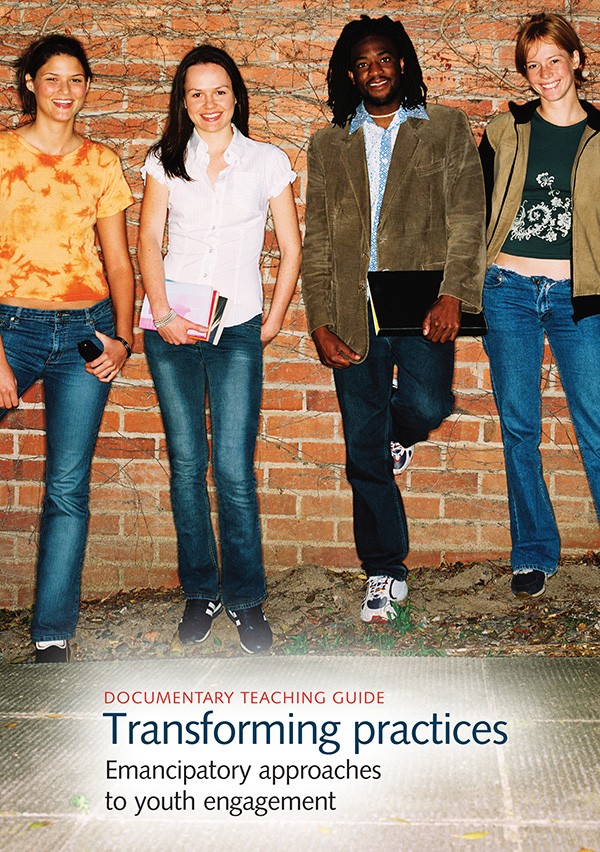Questions? Please e-mail project director Warren Linds.
Transforming practices: Emancipatory approaches to youth engagement
The Transforming Practices documentary and teaching guide are intended for educators and practitioners working with students, professionals and youth leaders, who are interested in emancipatory youth practices. Evoking ideas of freedom, release, and liberation, the documentary and guide explore youth engagement as a means for social change to improve organizations and to build healthier communities.
The objectives are to:
- Enable youth work educators to examine with their students effective approaches to working with youth in a collaborative leadership model.
- Understand the changes individuals and organizations need to make in order to adopt emancipatory practices in working with youth.
- Explore and assess the transformations involved both in the work and the personal framework of emancipatory youth work practices.
About the documentary & guide
The documentary and accompanying teaching guide result from a two-day workshop hosted by the Department of Applied Human Sciences at Concordia University in Montreal, Quebec, in June 2012. The workshop brought together youth, practitioners, and educators from all over the world to connect around promising practices for youth/adult partnerships. Presenters ignited interactive dialogue inspired by an earlier collaboration that emerged in the edited book Emancipatory Practices: Adult/Youth Engagement for Social and Environmental Justice (Linds, Goulet, & Sammel, 2010).
The workshop was planned to maximize the sharing of knowledge, to critically dialogue on application, and to illuminate underlying assumptions involved in adopting emancipatory approaches to youth engagement.
Based on the workshop, the teaching guide offers insights and thinking strategies that illustrate how youth and adult can collaboratively explore opportunities and obstacles for extending youth engagement beyond a mere trend, toward a transformative, value-driven practice. It introduces key themes relating to youth engagement and provides a series of activities—from discussion questions and story sharing to case studies and creative projects—that progress from conceptual to practical considerations to help guide thinking and strategizing about meaningful working relationships between youth and adults.
About youth engagement
Broadening and deepening youth engagement beyond a shift from youth as objects to subjects entails youth workers and educators grappling with the significance of building real, respectful and transformative youth/adult partnerships. Linds, Goulet, and Sammel (2010) define emancipatory approaches broadly “as those that enable youth to develop agency as active participants working in partnership with adults in the development of youth leadership and community change” (p. xiii). Strategies to implement emancipatory approaches include peer-to-peer and youth/adult mentorships that provide guidance and experience sharing to help other youth and adults realize the potential of youth engagement, overcome fears, imagine possibilities and take action. The Transforming Practices documentary and teaching guide offer rich, innovative ideas and examples of how emancipatory, collaborative work involving youth and adults can contribute to social justice.
Themes covered
- Youth/adult partnerships
- Power
- Voice and influence
- Trust and transparency
- Collaboration
- Mentorship
- Creativity
- Initiative
- Negotiation
- Integrity
Documentary & Teaching Guide
The documentary runs 35 minutes and includes workshop segments as well as interviews with youth, educators and practitioners of emancipatory youth practices.
The teaching guide is a 32-page booklet that provides conceptual context about youth engagement as well as activities and strategies to involve youth in leadership roles within their communities.


